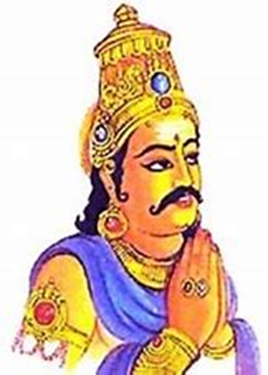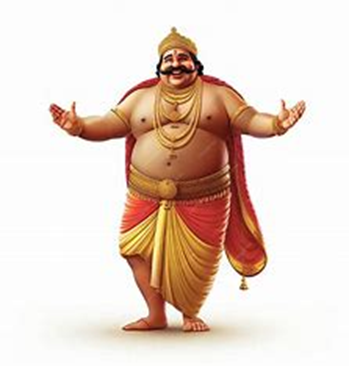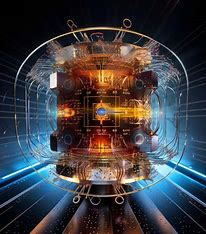Seven Chiranjeevi of Hindu Mythology
Seven Chiranjeevi of Hindu Mythology
Humans have always felt a deep connection to the divine, seeking answers and guidance from higher powers throughout our existence The rich tapestry of Indian mythology has captivated people with its enchanting tales, including the birth of gods and the flourishing of our culture. As mortals, we are bound by the inevitability of death, and ever-present reality that shapes our lives. Gods, on the other hand, transcend the boundaries of mortality. They exist eternally, untouched by the passage of time. At the core of our humanity lies the belief in a supreme being, A powerful entity watching over us from above. These omnipresence offers us solace and reassurance, providing a constant present in our lives. However, when we think of gods, our mind often conjugate images of an immortal being residing in celestial realms rarely do we envision a god working among us, especially in the modern era. Yet, contrary to common perception, there are deities who are believed to live among humans. These extraordinary beings are known as Chiranjeevi, seven immortals of Hindu mythology. In this article, we will delve into the fascinating realm of these Chiranjeevi gods, exploring the stories, significance, and profound impact they have had on Hindu culture.
Lord Hanuman one of the Chiranjeevi. Firstly, "Chiran" means "eternal" and "Jeevi" means "living thing," together Immortals who lived on Earth forever. Hanuman Son of God of Wind and Anjanadevi. Hanuman born as a part of Lord Shiva and the boon given to God of Wind. Being the part of Lord Shiva, he was filled with power since his childhood. One day Hanuman being very hungry saw the bright sun and thought it was an apple and flew up in the sky to eat it. Seeing this lord Indra threw his Vajra believing that the world would become dark without the sun. Hanuman was badly hurt and fell. On seeing his son hit by Indra his father stopped the entire wind in the world. The deva and the devatas went to Lord Shiva for help. Then the entire heaven visited Hanuman and gave him boons and he became immortal in a few hours when he was born. Hanuman had learnt all his subjects from the sun itself. Sugreev born by the boon by the sun. Hanuman joined the Vanara army. Sugreev on being defeated by Vali though he had the mighty Hanuman in his army. He cannot do anything till Lord Ram approaches him. This is because hanuman being naughty since his childhood make fun of the gurus who were doing their Tapasya so they became angry and gave a curse that hanuman will forget all his powers till he will do Loka Kalyan. This is why hanuman could not fight with Vali. Hanuman wanted to learn the vyakarana, so he married Suvarchala Devi. Do you know hanuman still lives in Kaliyuga though he was born in Treta Yuga and always supports the right such as in Ramayana in Mahabharata being the flag of Arjuna and in Kali Yuga helping the Tenth avatar of Lord Vishnu the Kalki Avatar.
Ashwatthama, one of the Chiranjeevi, the son of Sage Dhronacharaya. In the Mahabharata Ashwatthama fought against the Pandavs. On using the Brahmastra on Lord Krishna, had given a curse that Ashwathama should leave under the Kali Yug and wait till the tenth avatar of Lord Vishnu and get rid of the Karma. It is said that Ashwatthama visits the Lord Shiva temple in Madhya Pradesh and worship Lord Shiva. The birth of Ashwatthama was given by Dhronacharaya and Kripi, Dhronacharaya had gone years of severe penance in order to please Lord Shiva to obtain a son who possess the valiance. He was born with a gem on his head which gives him power over all living beings lower than humans. It protects him from hunger, thirst, fatigue. The name of the gem is Siran Ratna, and it makes him younger forever and immortal for his life, so he is considered as a Chiranjeevi. Ashwatthama is the only avatar of Lord Shiva who is not worshipped.
Vibhishana was born to the Rakshasi Kaikesi and the sage Vishrava. He was the younger brother of the King of Demons, Ravana. Vibhishana was diametrically opposite to Ravana even though they were born to the same parents. Vibhishana asked Ravana to return Mata Sita and seek pardon from Lord Rama. This angered Ravana who threw out Vibhishana from Lanka, Vibhishana humbly approached Rama and fell upon his feet. Rama warmly welcomed him recognizing he was here to serve Rama as his mace in the battel with evil. Vibhishana played a crucial role in battel telling the yajnas of Indrajit and Ravana will only die if you will hit him on his naval and dry out the nectar of Immortality. Vibhishana is also waiting for the Kalki avatar to come to the Earth and get relief from the task.
Parasuram, one of the Chiranjeevi. The sixth avatar of Lord Vishnu. The word Parasuram is derived from two words Parasu meaning 'axe' and Rama. The word Parasuram means ' Rama with an axe'. The reference to Parashurama appears in the epic Mahabharata a few times. Parashurama taught the art of war to Bhishma and Dhronacharya. He also gave knowledge of Brahmastra to Karna. Karna lied to Parashuram to become his disciple, telling him that he was a Brahmin. Parshuram cursed him that he would forget the knowledge what Parshuram had given him at the time when he would need it the most. Parshuram also had to fight a small war with Bhishma, his disciple, over the controversy of princess Amba, in which Bhishma defeated Parashuram. He was trained by Lord Shiva himself and was initiated with Rudramsha (Element of Lord Shiva himself). Only Shiva himself can kill those who received Rudramsha. That is why he is immortal, and according to Kalki Purana, he will reappear in Kali Yuga to instruct Lord Kalki in Astra and Sastra Vidya.
Bali Chakravarthi or Maha Bali he was a Daitya (Asura) King in the lineage of Prahlada (Bhakta Prahlada). He was the grandson of Prahlada and son of Virochana. Prahlada, his grandfather was an ardent and coveted devotee of Lord Srimannarayana for whose sake the Lord took the avatar of Lord Narasimha. Sage Shukracharya (Daitya Guru) was his preceptor helping King Bali in all his endeavours. Bali was a mighty and valorous Asura who had conquered all the three worlds including Heaven and Indra had to surrender to him. At the same time, he was virtuous, an exemplary King dedicated to the welfare of the people in his kingdom. He was also famous and known for his charitable qualities. King Bali learned all the Shastras and obtained Vedic knowledge under the guidance and supervision of his illustrious grandfather Prahlada. During his reign the country and the people were very prosperous. With the help of his preceptor Maha Bali had conquered the three worlds and dethroned Indra from Heaven and occupied Amaravati the capital of Indra. Celebrating his successful expedition Maha Bali was performing a great Yagna with the help of his Guru, Sage Shukracharya. Mahabali also temporarily possessed the amrita (nectar of eternal life) obtained by the asuras. The amrita allowed his subjects to bring him back to life after his death in one of the wars between suras (devas) and asuras. Mahabali was, thus, immune from death. After many wars, the invincible Bali had conquered heaven and earth. The suras (devas) approached Vishnu to save them from complete obliteration. Vishnu refused to join the war, or outright kill the benevolent king Mahabali. To restore the natural order, he incarnated as the dwarf Brahmin avatar, Vamana. While Mahabali was performing the Ashvamedha sacrifice to celebrate his victories and giving away gifts to everyone, Vamana approached him and requested "three steps of land". Mahabali granted him this gift, despite warnings from Shukra, who had realized Vamana's true identity. Vamana then metamorphosed into Vishnu's colossal Trivikrama form, the first foot encompassing all of heaven in one step and the earth with the second foot. When rhetorically asked where he might take his promised third step, Mahabali accepted his fate and offered his own head. Some Hindu texts state that Mahabali was banished to Patala (netherworld), some state he was dragged there by Garuda, in others he entered heaven with the touch of Vishnu, while another version states he became Chiranjivi (immortal). Others even have Bali admitted into Vaikunta, which was an even higher place than the realm of the devas.
Vyasa's birth name is Krishna Dvaipayana, which possibly refers to his dark complexion and birthplace, although he is more commonly known as "Veda Vyasa" as he has compiled the single, eternal Veda into four separate books Rigveda, Samaveda, Yajurveda and Atharvaveda. The word "Vyasa" refers to "compiler", or, "arranger", and also means "separation", or "division." Other meanings are "split", "differentiate", or "describe." It is also a title, given to "a holy sage or a pious learned man," and applied to "persons distinguished for their writings. "Swami Vivekananda expresses the opinion that Vyasa may not have been a single person but a lineage of sages who were content to simply develop the ideas without claiming credit, as they were free from desire for the results of their work, and hence attributed the authorship to Vyasa. He says that Vyasa being only a title, anyone who composed a new Purana was known by the name Vyasa. Hindus traditions hold that Vyasa subcategorized the primordial single Veda to produce four parts as a canonical collection. Hence, he was called Veda Vyasa, or "Splitter of the Vedas", the splitting being a feat that allowed people to understand the divine knowledge of the Veda. The Vishnu Purana elaborates on the role of Vyasa in Hindu chronology. The Hindu view of the universe is that of a cyclic phenomenon that comes into existence and dissolves repeatedly. Each Kalpa cycle is presided over by a number of Manus, one for each manvantara, and each manvantara has a number of Yuga cycles, each with four Yug ages of declining virtues. The Dvapara Yuga is the third yuga. So, he is one of the immortals.
Kripacharya is one of the Chiranjeevi who will live alive till the end of the Kaliyuga in Hinduism. According to some scriptures, Kripacharya was blessed with immortality because of his discipline, loyalty and impartial nature. So, Lord Krishna had offered him a boom that he will be immortal.
From our puranas and etihasa's it is evident that Asuras' are the ones who typically for a boon or immortality to Lord Brahma and is denied because of the anticipated evilness and wickedness that the asura's demonstrate upon receiving this boon. On the contrary, immortality is given to those people who follows dharma, righteousness, and divinity by the god himself. if you follow dharma, it automatically protects you from all small of big problems and has the power to achieve immortality.
अश्वत्थामा बलिर्व्यासो हनुमांश्च विभीषणः ।
कृपः परशुरामश्च सप्तैते चिरंजीविनः ॥
सप्तैतान् संस्मरेन्नित्यं मार्कण्डेयमथाष्टमम् ।
जीवेद्वर्षशतं सोपि सर्वव्याधिविवर्जित ॥






.jpeg)


Comments
Post a Comment